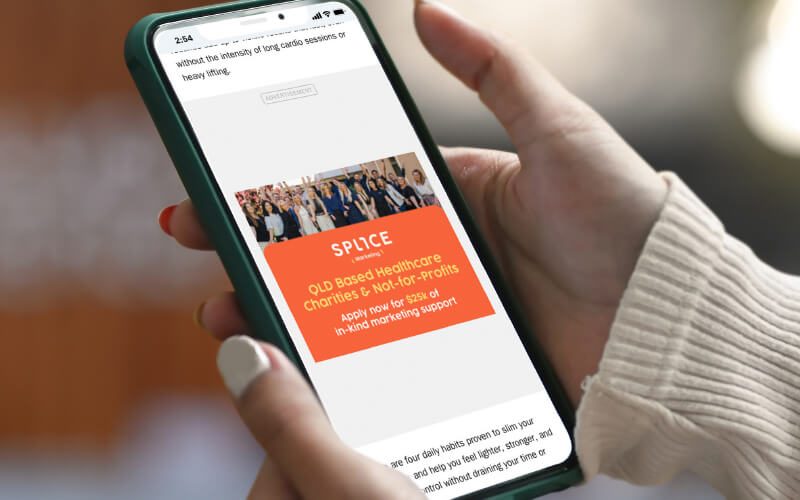Wondering what healthcare marketing is all about?
Here are my answers to some of the questions people most commonly ask when I tell them I’m a healthcare marketer and have a team of healthcare marketing professionals.
1. What Is Healthcare Marketing?
It’s a strategic communications process designed to attract, educate, engage and retain health consumers or clients who are health professionals. It could involve raising awareness of a condition to support a charity’s fundraising efforts, promoting a practice or health service to bring in new patients, or increasing sales of a particular product or service.
2. What does a healthcare marketer do?
When dealing with patients, you examine them, diagnose their problem, treat it based on the best available evidence, and monitor their recovery.
We operate in a similar way by examining your marketing efforts, developing an evidence-based strategy to win new patients, and applying our ‘treatment’ across the chosen channels, such as Facebook, Instagram or Google. We monitor progress by gathering data on new leads and conversions to ensure that our marketing plan helps grow your practice.
3. Is Marketing Important For Healthcare Professionals?
If you want patients, then yes.
We live in a digital age. According to the Australian Institute of Health and Welfare, 78% of people seek out health-related information by asking questions online. Google tells us that 1 in 20 Australian searches are health related. And 15 million Australians use Facebook each month. Your patients expect to find you online, browse your website to see if they like you, and book online at a time that suits them.
Let’s imagine someone struggling with heel pain. They’re scrolling through their Facebook feed one day when your blog on plantar fasciitis catches their attention (because we’ve targeted your ad at a certain type of person in your area who might be likely to have that condition). They read your blog and decide it’s time to see a podiatrist. They head over to Google to find ‘podiatrists near me’ and, because we’ve done everything necessary to make Google like you, your Google ad appears. They follow the link to your website, like what they see, and book online right then when they’re keen.
Had you not been present in these online spaces, your new patient would now be sitting in your competitor’s waiting room.
4. What Are Some Healthcare Marketing Techniques?
The first step is to develop a strategic plan to take you from where you are now to where you want to be. We need to identify what’s special about you, decide which audience to target, and develop tailored messages that spark their interest and convert them into your new patients.
SEO, or search engine optimisation, is a key technique that helps you grow your practice through Google. Your website needs to appear in the top few spots on the first page of Google search results when a prospective patient searches for something you can help with. SEO involves both careful copywriting and setting up your website in the right way.
SEO improves over time if you provide expert, authoritative, trustworthy content that answers the questions your audience is asking. We delve into online patient forums to find the most frequently asked questions about a condition or health service then write conversational copy that addresses the topic.
5. What Are Some Of The Benefits Of Healthcare Marketing?
The ultimate benefit of healthcare marketing is that it helps build a thriving practice. You might become the preferred practitioner in your area with a waiting list that people are happy to be on. You might be able to extend your practice across several locations or offer an innovative service in response to community needs. Successful digital marketing has enabled our clients to achieve these goals and more.
That’s because digital marketing:
- Increases patient awareness of your practice
- Extends your reach, helping you warm up prospective patients through paid ads, increasing the likelihood that they’ll choose you when they need to see someone
- Enables you to target certain patient groups in specific locations, for example, to advertise a new service or prompt people to come for a check-up
- Increases word-of-mouth referrals, which often happen through social media sites now
- Helps give a positive impression of your practice at each touchpoint, giving your patient consistent messages that progress as they check you out on Instagram, Facebook or Google
- Aids in patient retention because social media helps you build engagement, which translates to practice loyalty
- Provides a better patient experience that reflects patients’ digital behaviour in other aspects of their life
- Generates data about the effectiveness of your marketing, enabling you to build on what’s working and adjust what’s not delivering.
6. Who Is Healthcare Marketing For?
If you own a healthcare practice, then healthcare marketing is for you. You could be a GP, an allied health professional, or a medical specialist, or you might be a business person who owns a healthcare practice.
Healthcare marketing helps you build your practice, moving from financial worries and a feast-or-famine pattern to a steady flow of patients you can rely on.
Healthcare marketing is also for you if health professionals are your clients.
7. What Is B2B Healthcare Marketing?
Business-to-business (B2B) healthcare refers to companies who have health professionals as their clients. People running a practice require many services to keep it going, whether that’s practice management software, business advice or services relating to medical recruitment, accountancy or audit.
B2B healthcare marketing promotes your products or services to doctors, allied health professionals, and practice managers who could benefit from them.
8. Is Healthcare Marketing Ethical?
Yes, if it complies with industry codes and regulations.
People may be in a vulnerable position when they start searching for health information online. They may have worrying symptoms or could have just received a distressing diagnosis. Healthcare marketing regulations exist to protect the public from misleading or deceptive claims that may create unrealistic expectations of success.
The Australian Health Practitioner Regulation Agency’s (AHPRA) Advertising Guidelines and the Therapeutic Goods Administration (TGA) Advertising Code both provide detailed guidance on how to advertise health services and products. Many professional associations have their own additional guidelines.
You must, must, must follow these rules, which derive from Australian law. There can be serious penalties for non-compliance – as there should be.
That said, AHPRA understands that HCPs in private practice need patients. When it’s done ethically, healthcare marketing is a perfectly acceptable and necessary activity. You’ll struggle to build a thriving practice without it.
At Splice, we can help you advertise your services ethically. We often undertake compliance audits for new clients (from a marketing not legal angle), combing through your website to check that everything there is within the rules. Those rules can be quite complicated and many people unintentionally breach them, which is why our team includes a lawyer who used to sit on the AHPRA Board and our team have all received training in ethical, compliant healthcare marketing.
Where to from here?
So, that’s everything you need to know (for now) about healthcare marketing. To learn more, and to find out how Splice Marketing can help your practice or business grow in an ethical, compliant manner, please get in touch.








